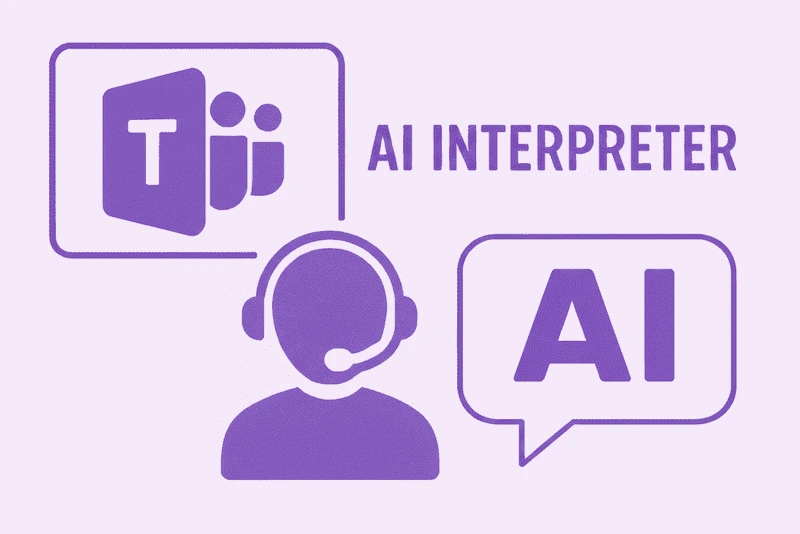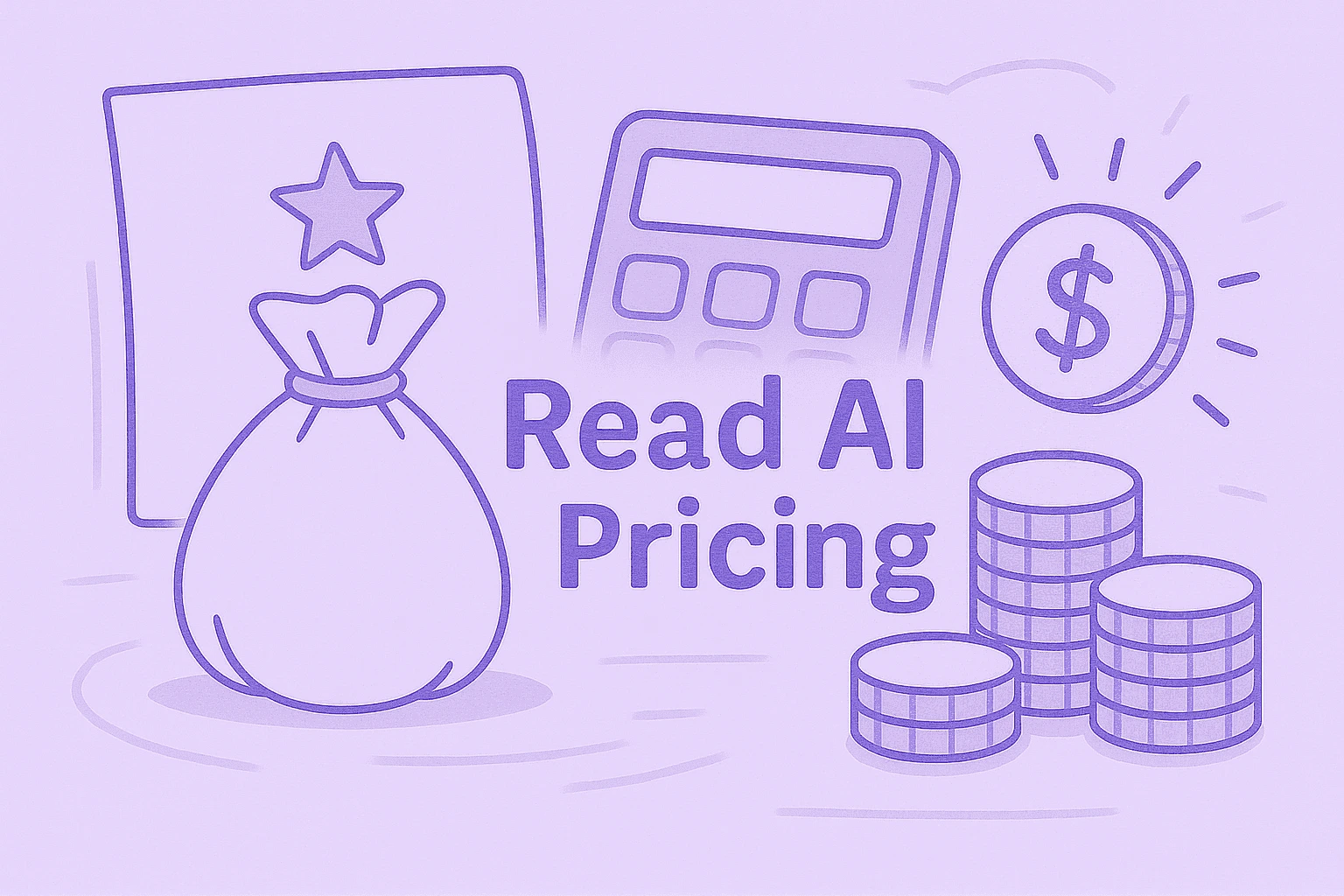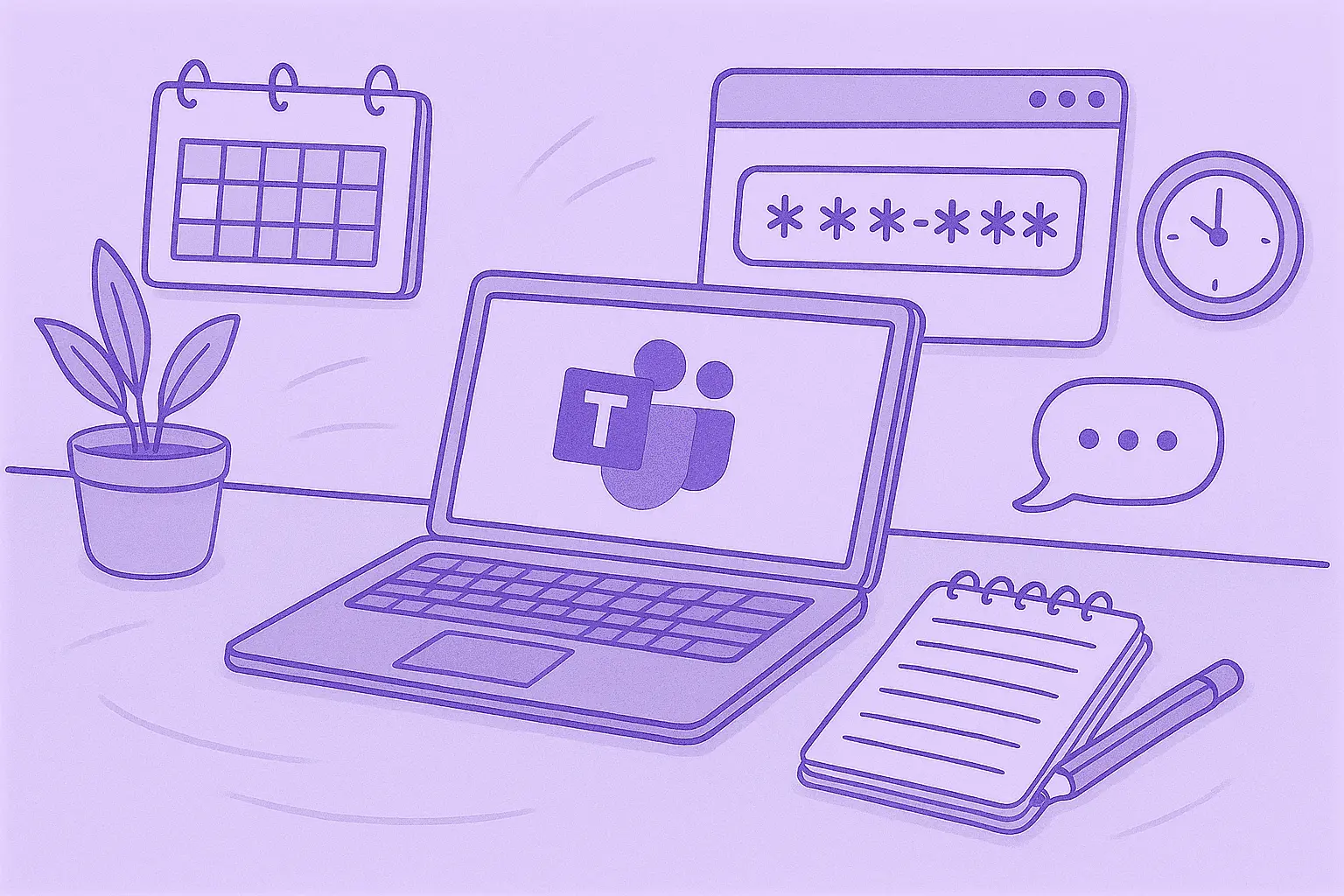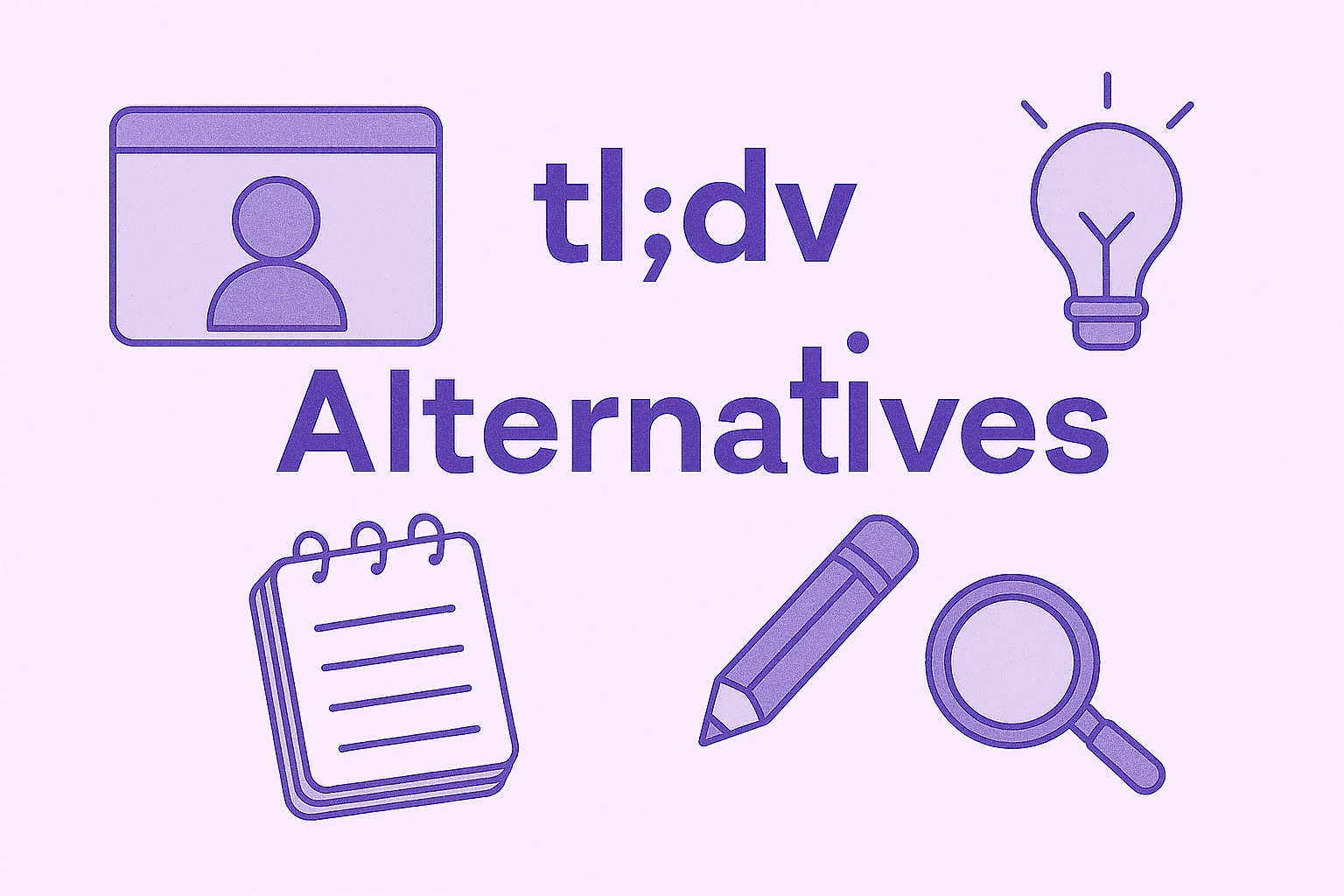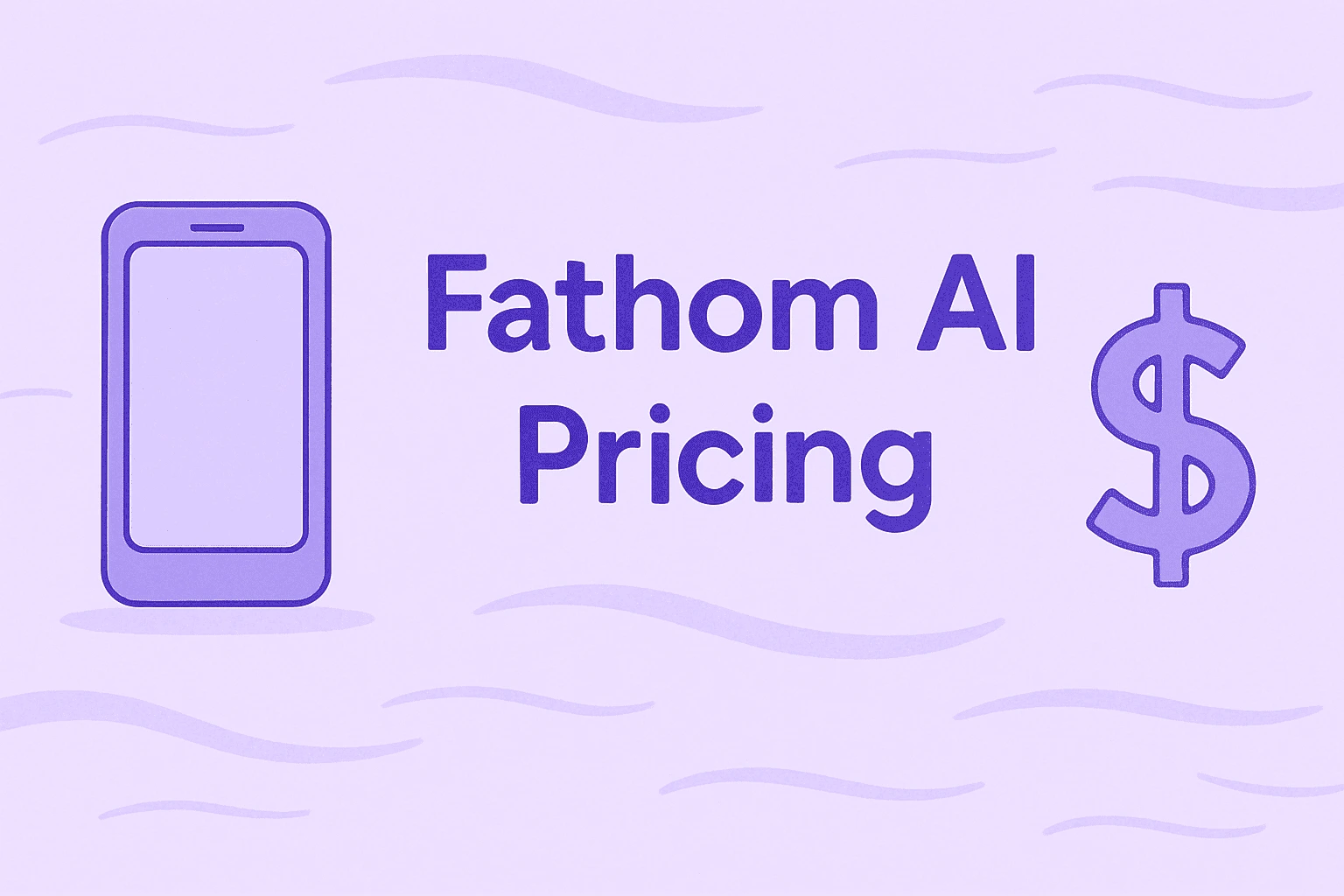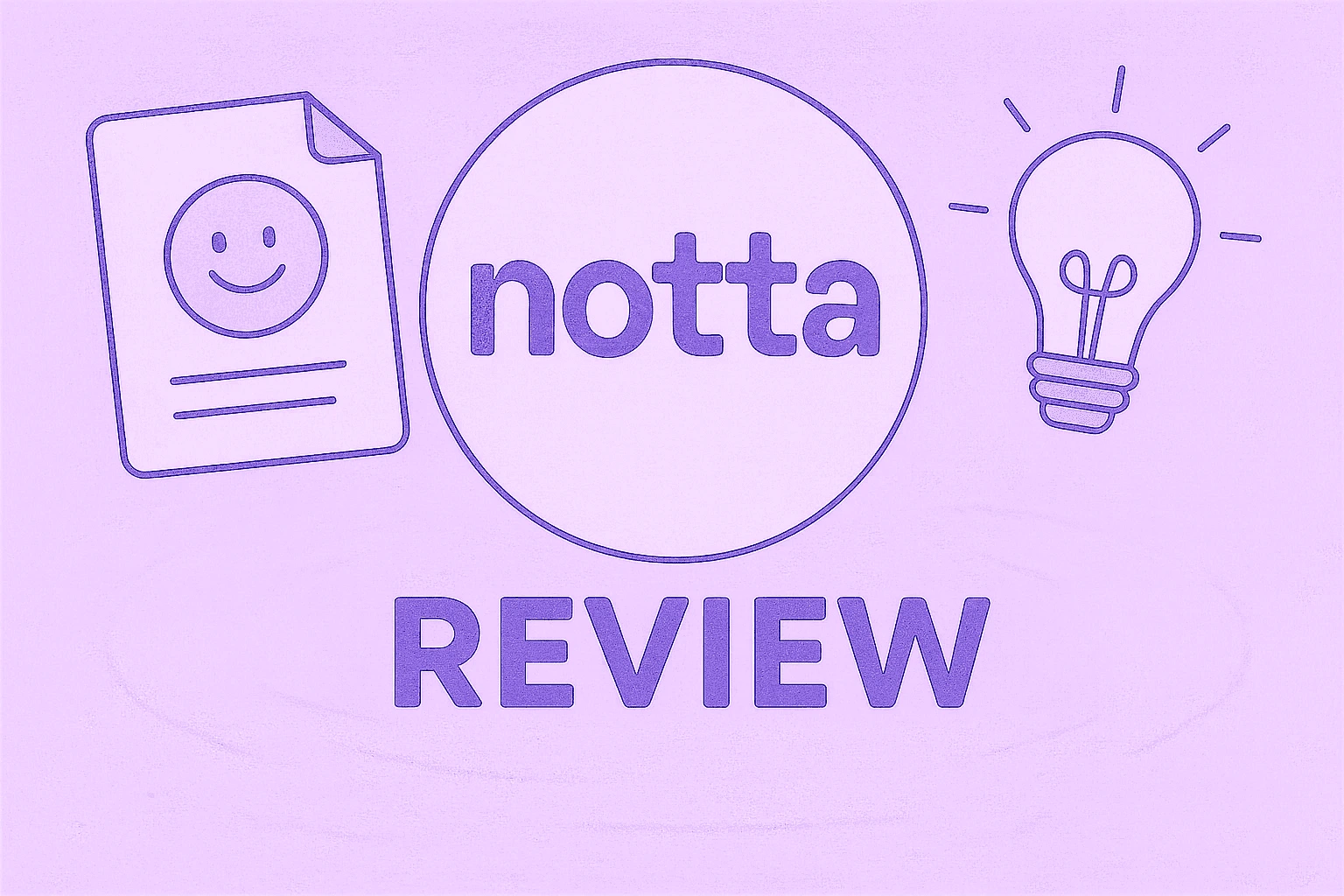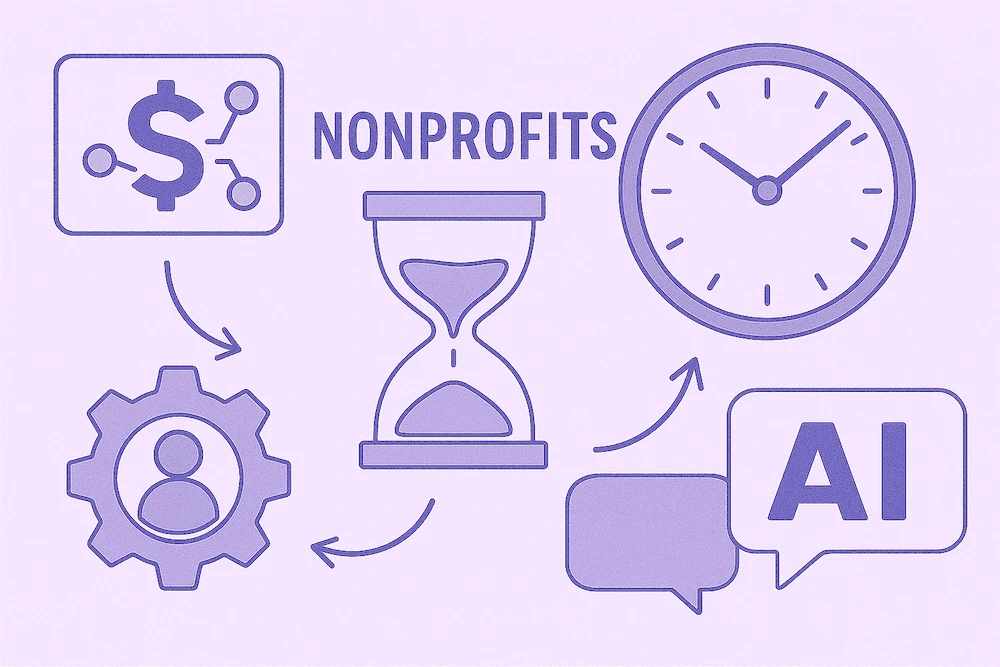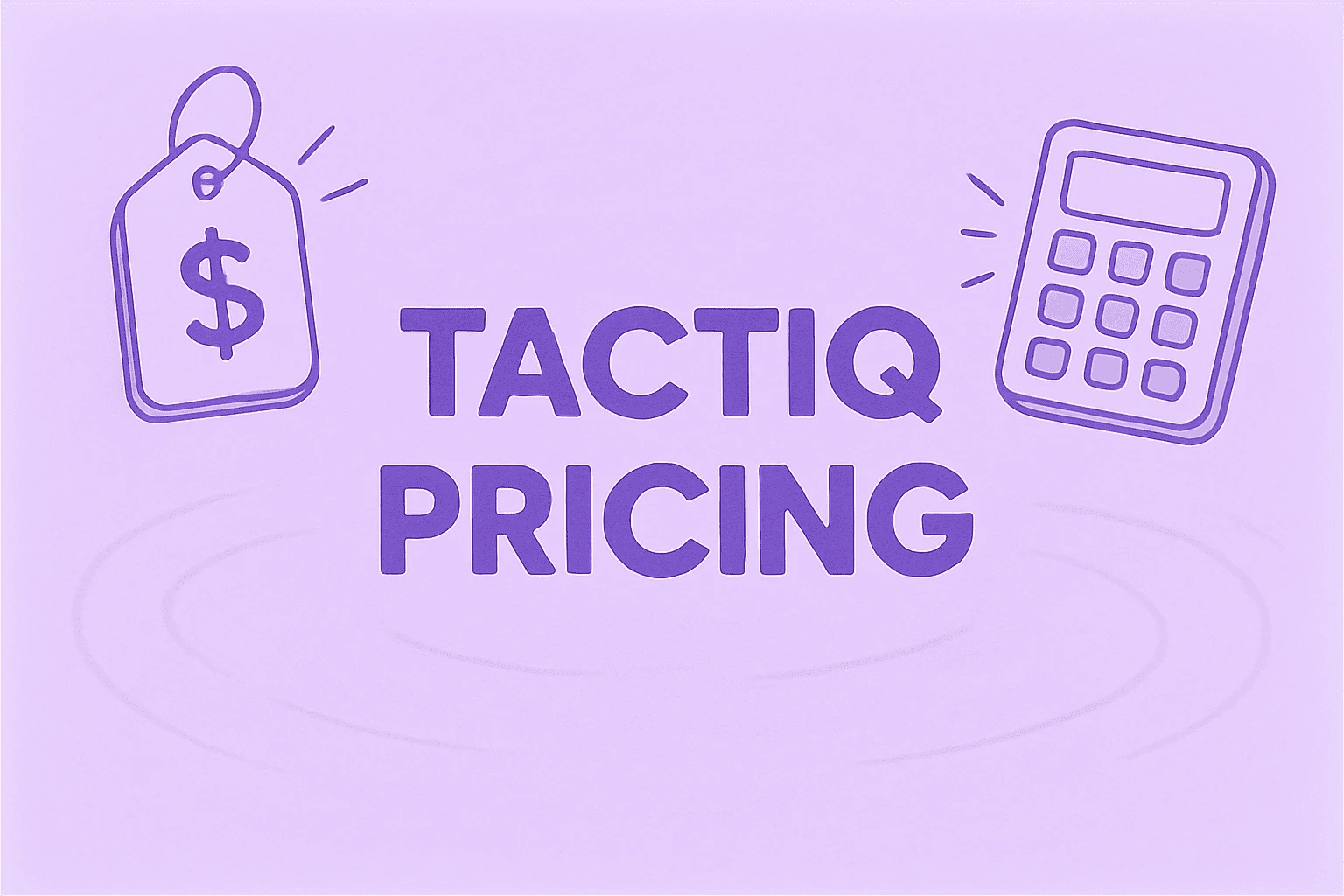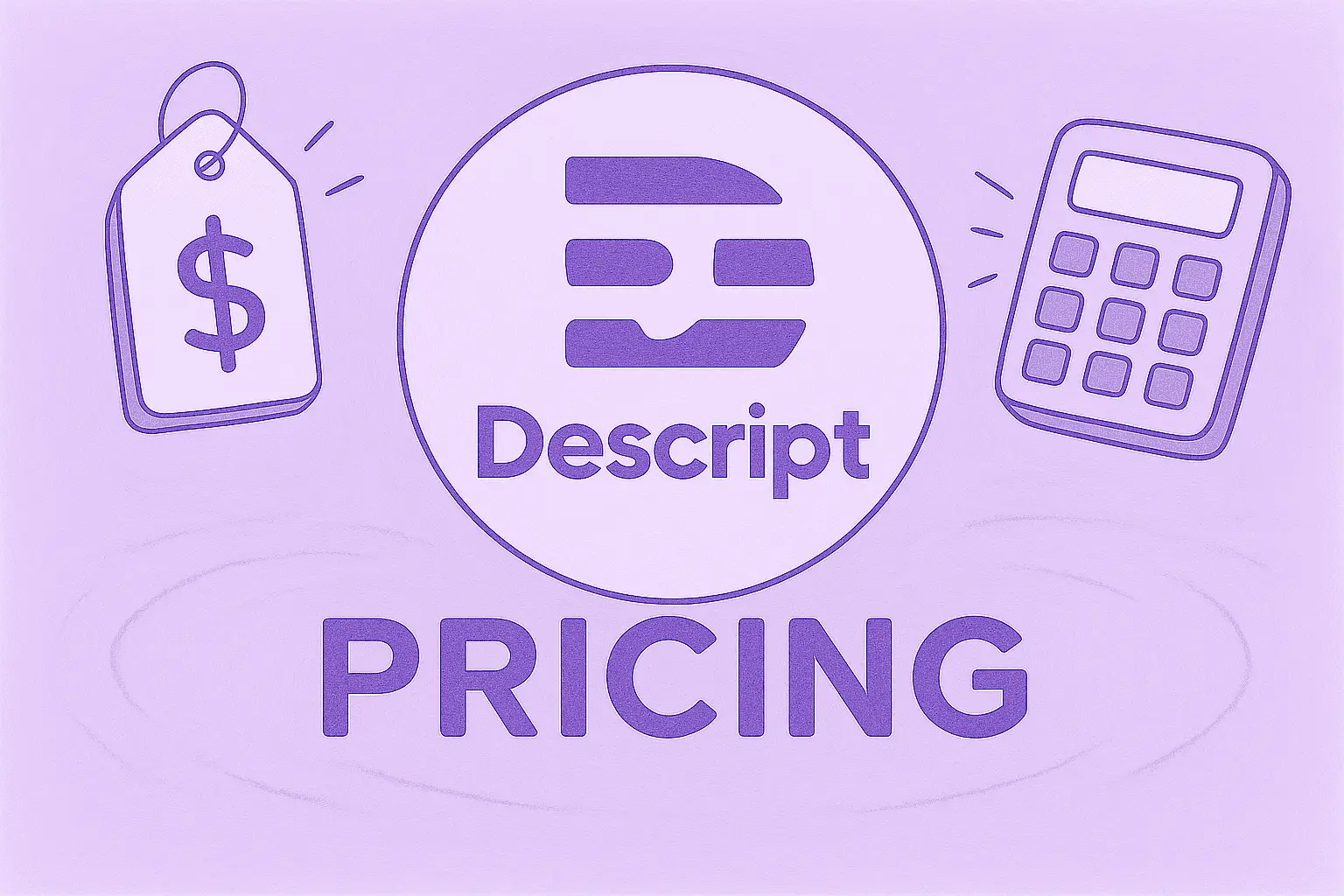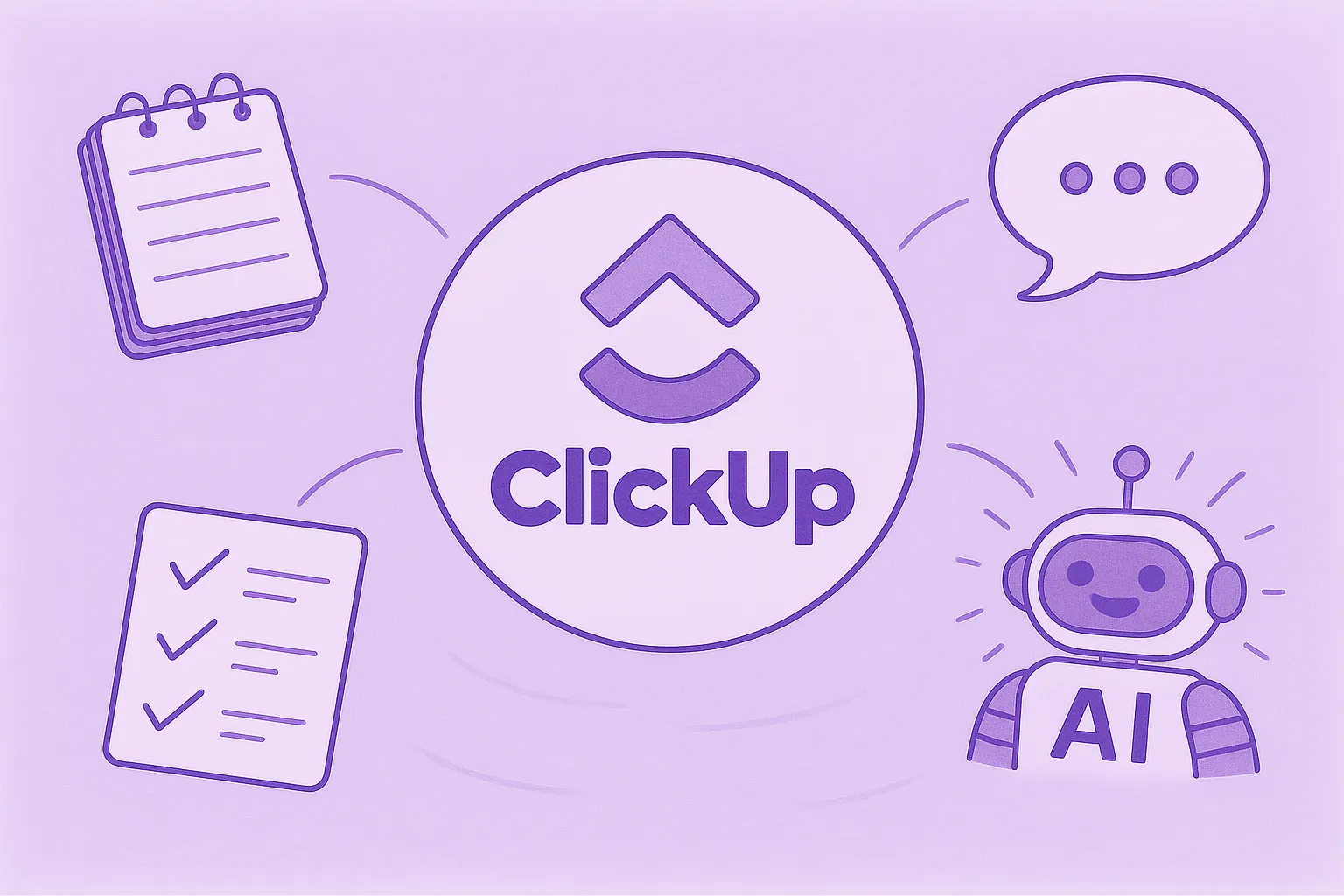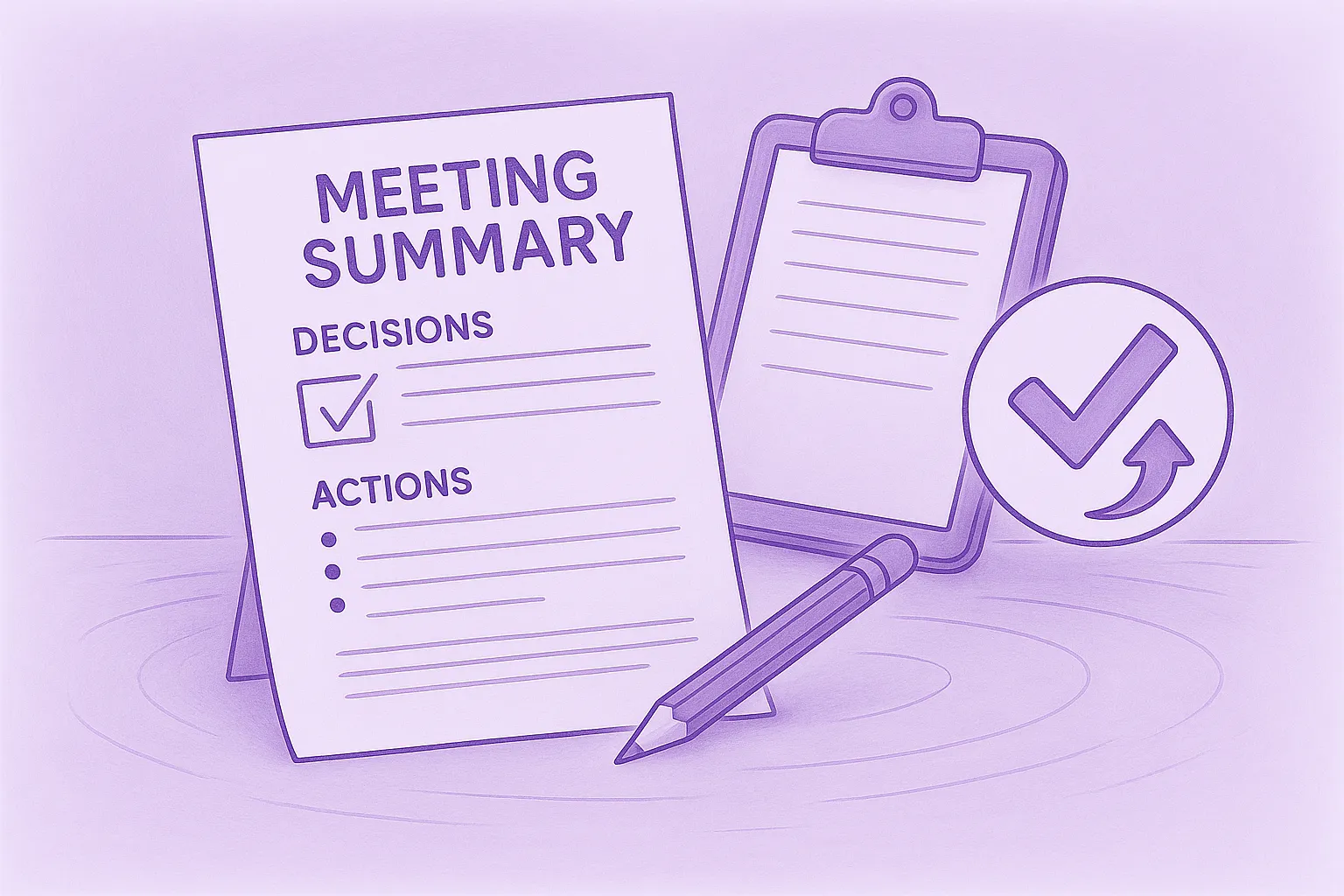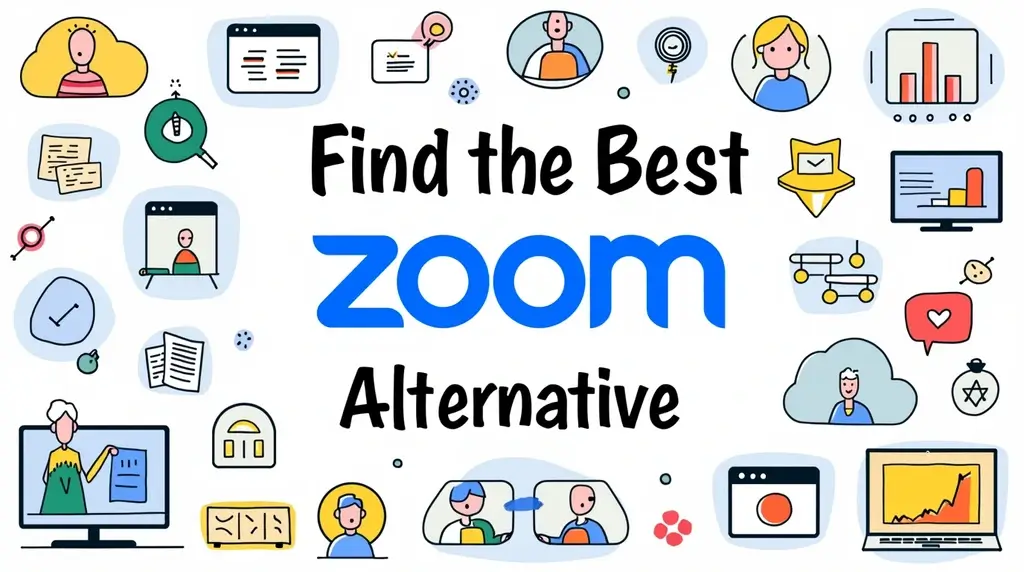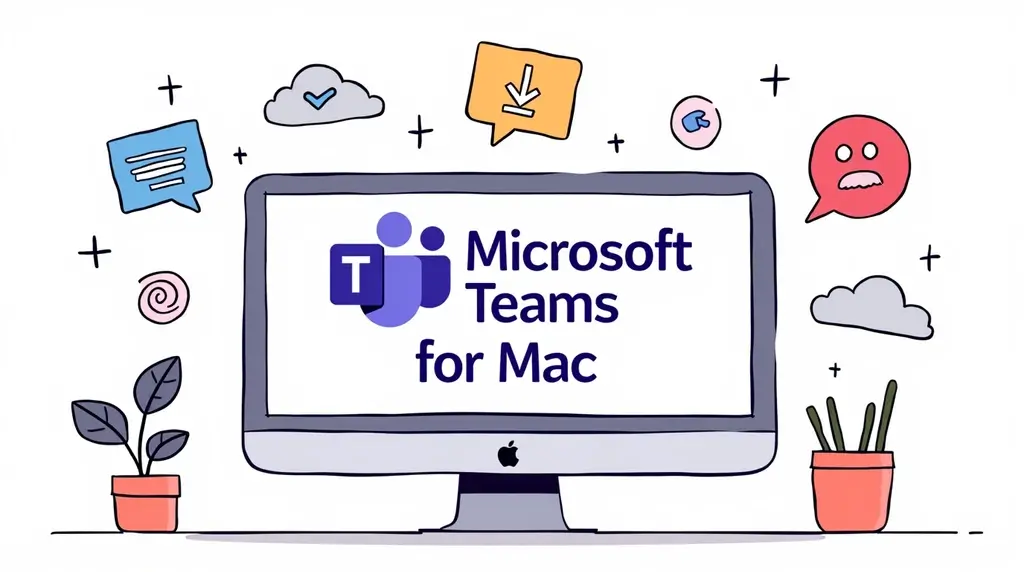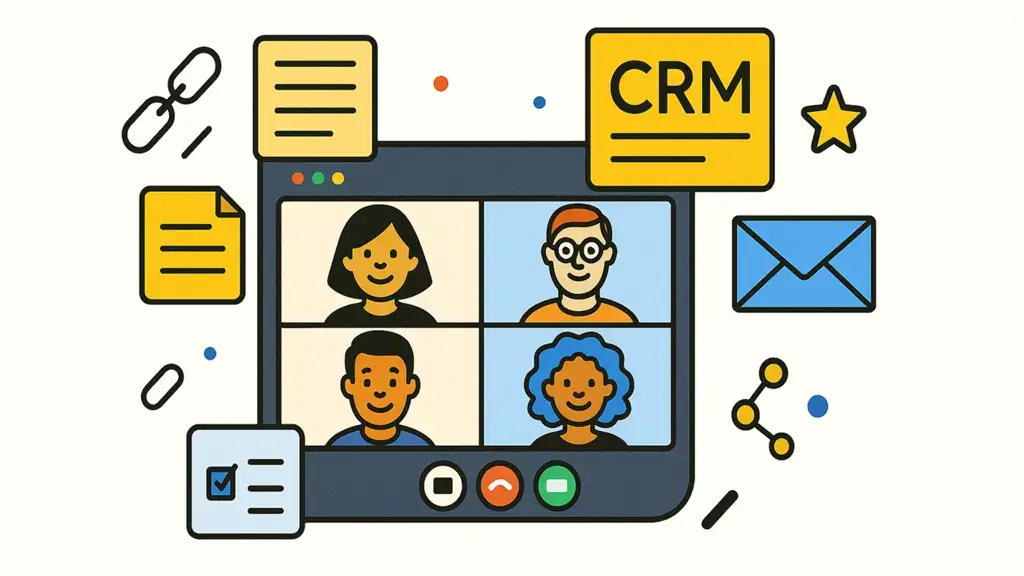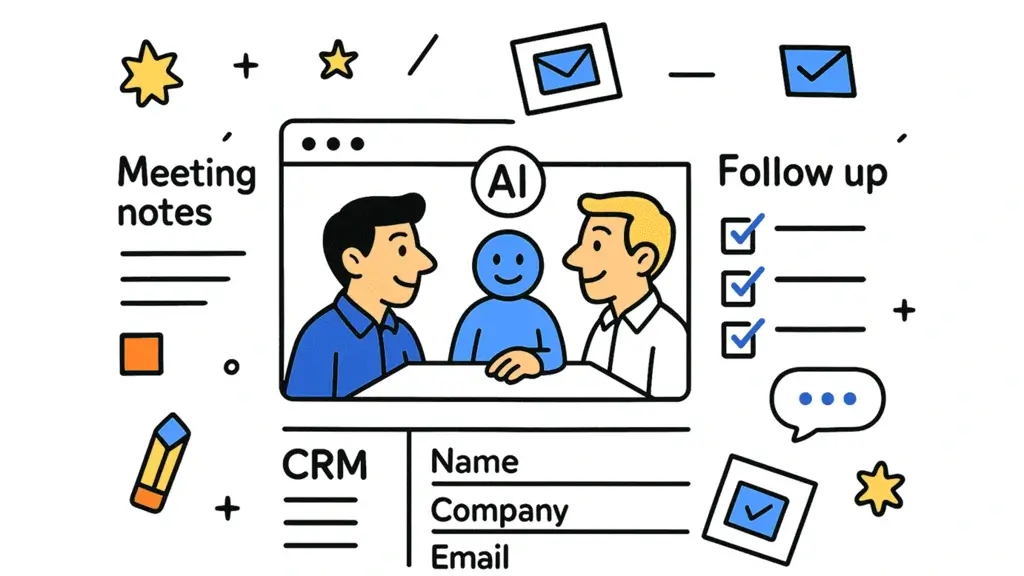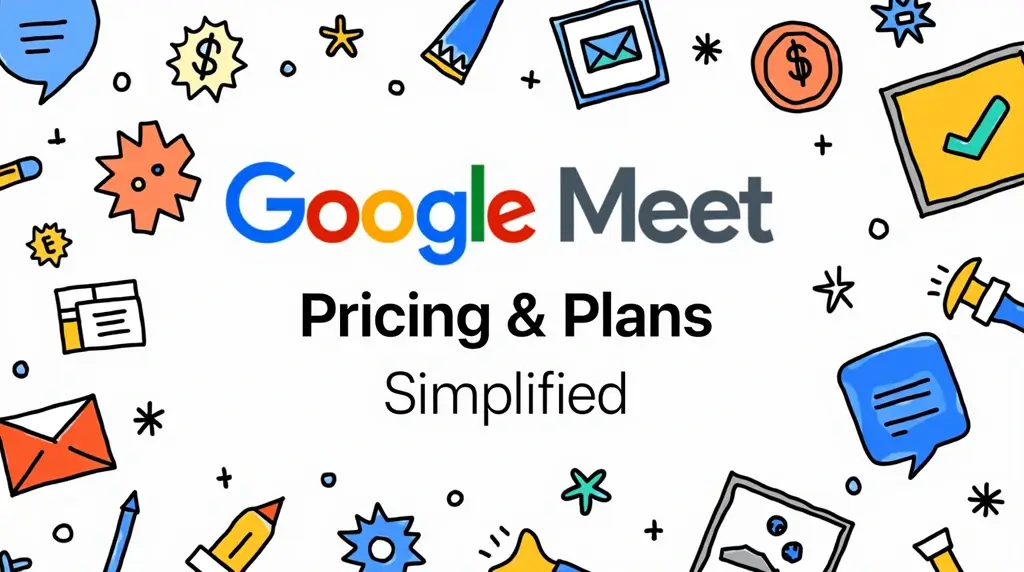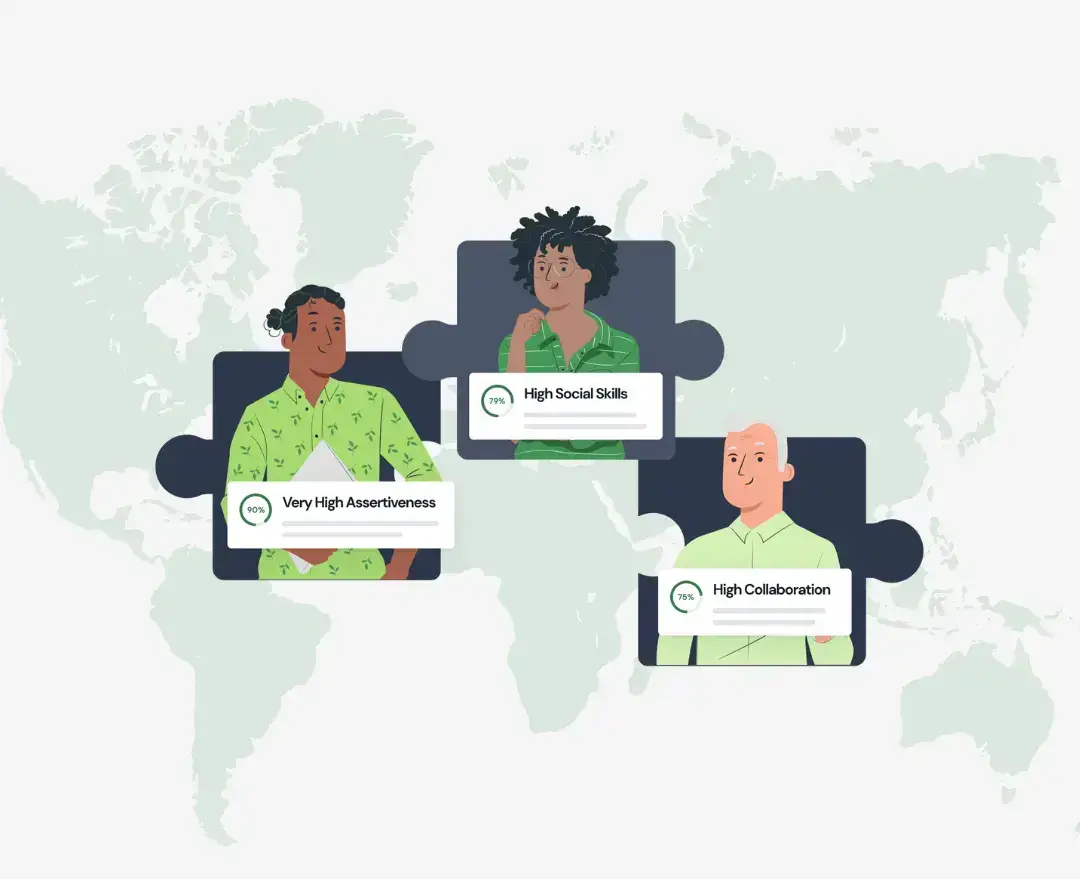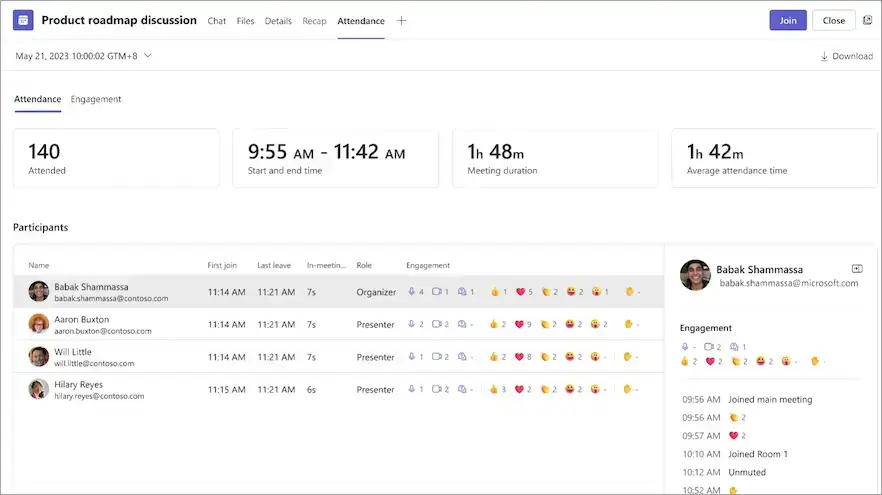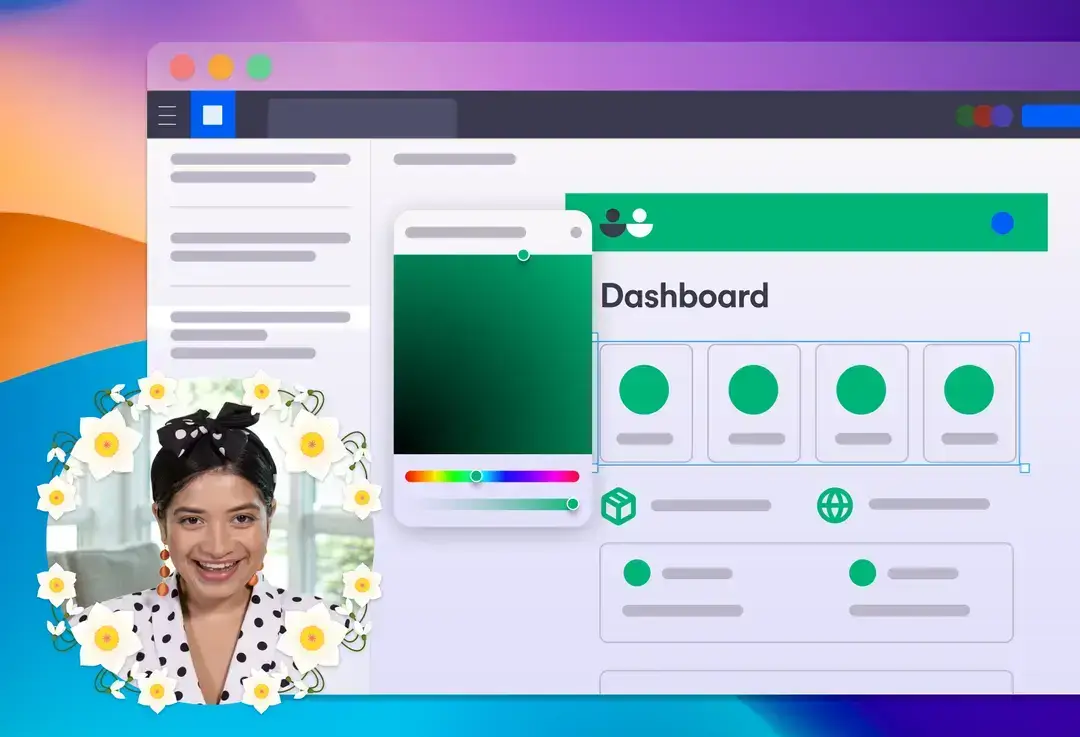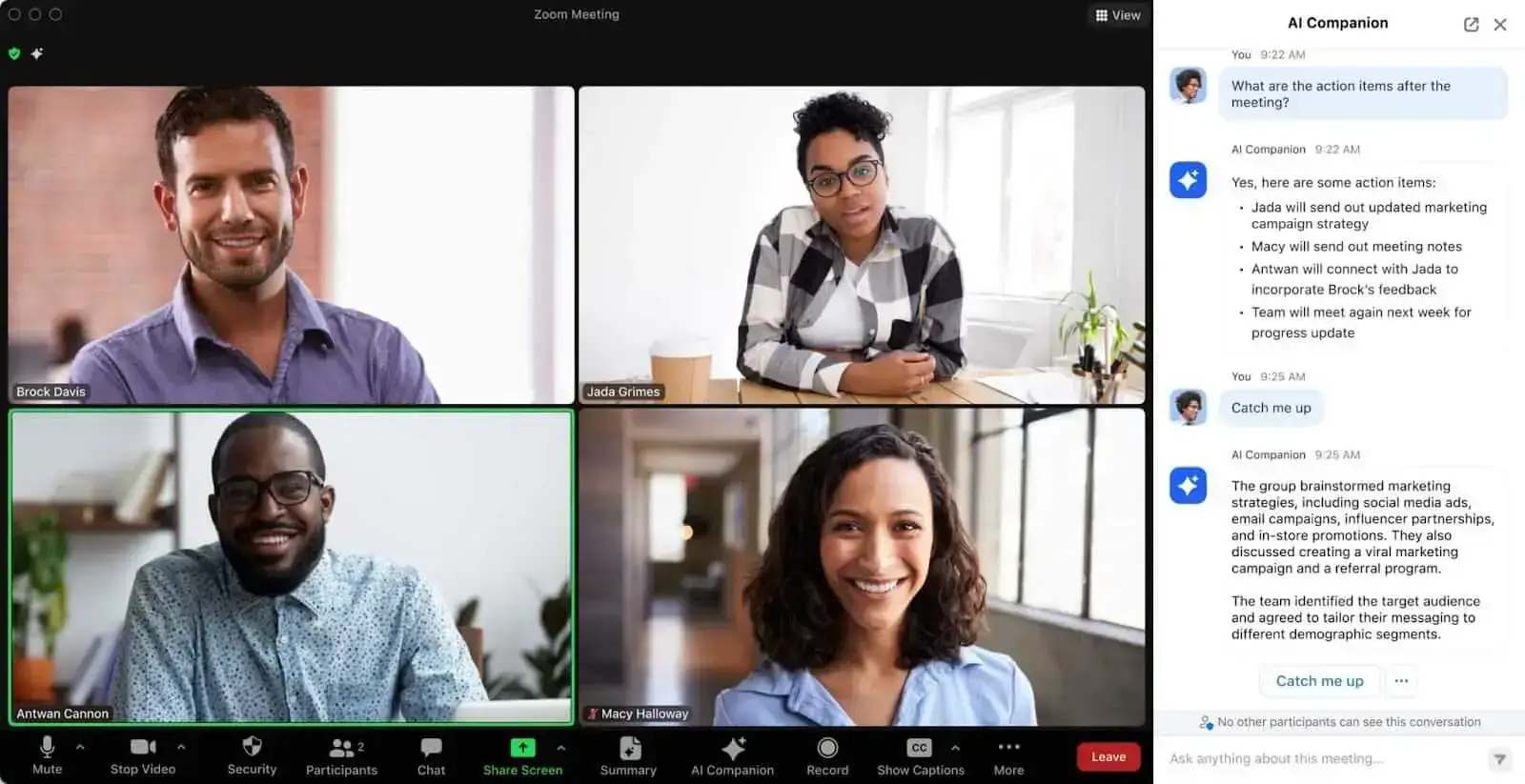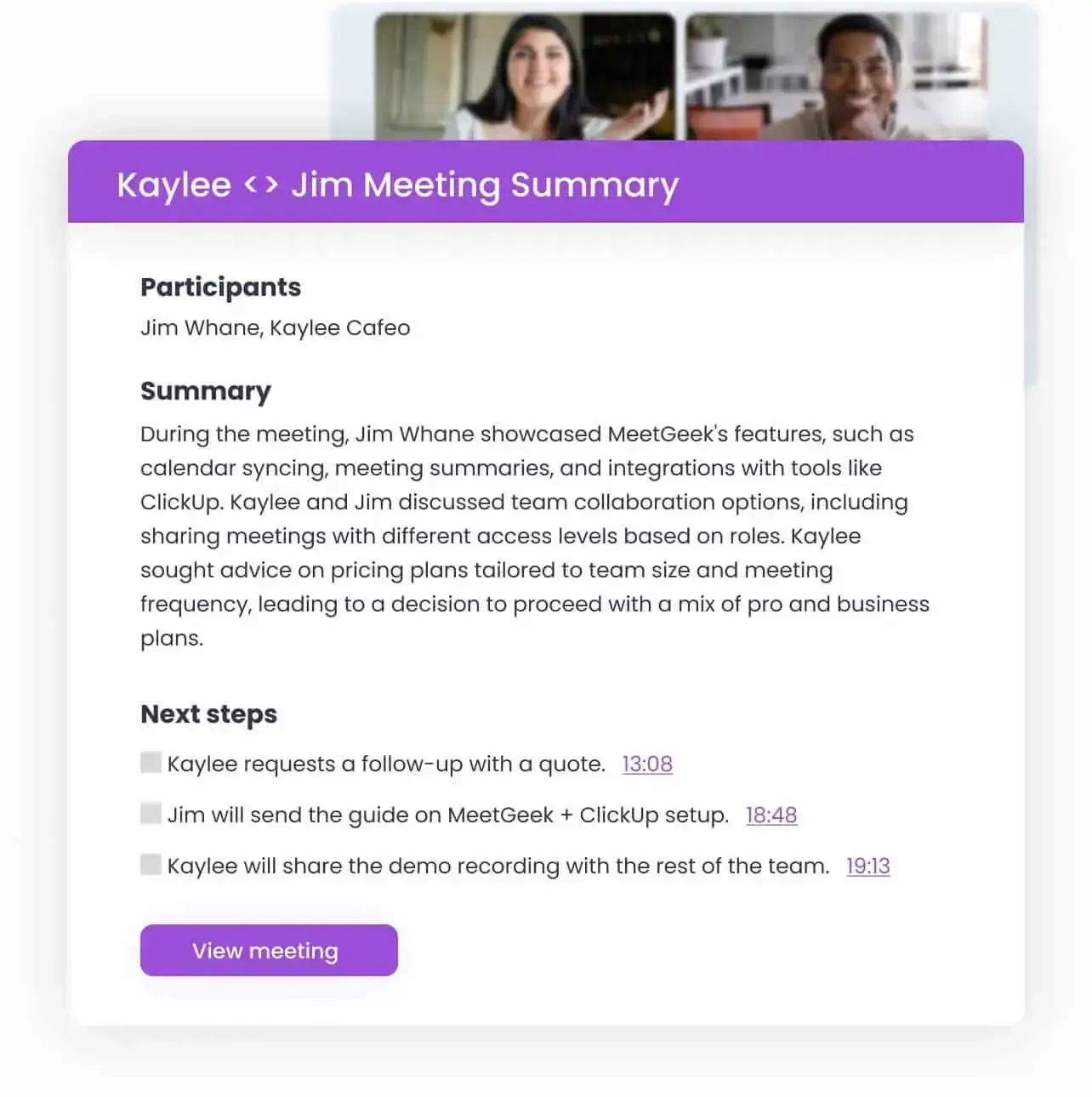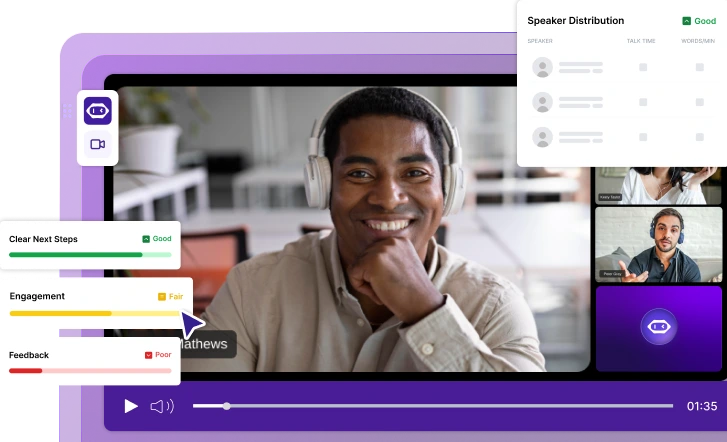How to Get Clients For Your Business
Are you a new business owner looking to attract clients? Here are our tips to teach you how to get clients for your business!

✅ Free meeting recording & transcription
💬 Automated sharing of insights to other tools.

Image Source: rawpixel.com on Freepik
If you’re trying to learn how to get clients for your business, you’re in the right spot. Keep reading to find out what the most profitable businesses do to attract (and keep) new customers!
Is Getting New Clients Supposed to Be Hard?
The short answer is: it can be, especially if you don’t know where to begin.
Here are some of the common hurdles you’ll face when you lack proper strategy, planning, and execution:
- Generating awareness and visibility
- Building f trust and credibility
- Developing effective lead generation strategies
Let’s take a closer look at each of these challenges!
1. Generating Awareness and Visibility
This should be one of your top priorities when implementing any marketing strategy. A successful marketing strategy requires a mix of various tactics to ensure that your target audience is aware of your product or service and that they can easily find and engage with it.
Overlooking digital marketing, such as SEO, content marketing, social media marketing, and focusing exclusively on traditional marketing tactics, such as direct mail, bulk SMS campaigns, radio, and television ads simply doesn’t cut it anymore. Leveraging tools like an AI video maker can give your content a competitive edge.

2. Building Trust and Credibility
In today’s competitive landscape, clients choose companies they can trust and rely upon to provide quality service and products.
Establishing a clear mission and values, a good reputation in the industry, and an outstanding track record with customers are just some of the things you’ll need to pay close attention to. When you fail to offer your customers a pleasant and helpful experience, they are less likely to come back or to recommend your business to others.
This trust factor is especially critical in the construction and trades industries, where being properly licensed, bonded, and insured not only satisfies legal requirements but serves as concrete proof of professionalism that clients actively seek before hiring contractors.
3. Developing Effective Lead Generation Strategies
Businesses frequently struggle to find the most effective lead generation strategies and channels to reach their target audience and create compelling content. This occurs when they don’t have a data-driven approach to lead generation, and overlook tracking key metrics and examining the results to identify which strategies are working and which need to be improved.
Without leads, your business cannot grow, increase sales, or create a successful marketing plan. Research into the wants, needs, and interests of the people who are likely to be interested in your company’s products or services is a must. For instance, offering value-added services such as drafting proposals or helping clients create legal contracts could establish your business as a trusted partner in their journey.

How to Get Clients for Any Business
Regardless of the industry your business is operating in, there are several different tactics you should explore. Here are the best tips to find clients for your business:
- Narrow your niche
- Define your ideal clients
- Help potential clients find you
- Upgrade your website
- Find potential clients
- Become Friends With Your Industry
- Focus on providing value
Let’s take a look at each tip to see how you can succeed at finding clients for your business!
1. Narrow Your Niche
When trying to attract more clients, it is important to narrow down your niche and focus on a specific group of people. A niche is a specific market segment that has its own unique needs that you can serve. By narrowing it down and targeting your marketing and sales efforts to a more specific group of people, you will be able to increase your chances of success.
To achieve this, there are a few steps you should take. First, identify a gap in the market. This could be a gap in the type of products or services offered, a gap in the price range of what is currently available, or a gap in the quality of what is on offer.
Outline the specific characteristics, needs, and challenges of the customers you are targeting. Consider the size, industry, and geographic location of your customer base.
Next, take a look at your competition. Who are they targeting, and how are they doing it? The answer to this question will help you to differentiate your offering and create a unique value proposition within your niche.
While carving out your niche, evaluate your current resources and determine what you can effectively offer by realistically considering your skills, budget, and team capabilities.
2. Define Your Ideal Clients
Assess the type of products or services your business provides. Next, consider the attributes of the customers that would most benefit from what you offer.
Examine the age, income level, location, gender, interests, and all other relevant criteria that would help you narrow down your target audience. Once you have pinpointed the general characteristics of your ideal customer, you can get more specific.
Pay attention to your existing clients’ purchase habits:
- Are they looking for a specific type of product or service?
- Are they searching for something specific or something more general?
- How much are they willing to spend?
The answers to these queries will help you further refine the profile of your ideal client. Tools like ticketing system software can also be invaluable in understanding your customers better, as they track and analyze customer support interactions, highlighting common issues and preferences. Once again, you can also look at the competition to understand of the types of customers they are targeting:
- What kind of messaging are they using to reach their audience?
- How are they positioning their products or services?
- What types of promotional activities are they engaging in to attract clients?
Once you learn who your ideal customer is, you can design content that appeals to them.

When getting in touch with potential clients, efficient communication is paramount. That’s why you need to make sure that you’re 100% present and that your clients feel heard. Our AI virtual meeting assistant MeetGeek is specifically designed to allow you to focus on your meetings while it automatically records, summarizes, and transcribes them.
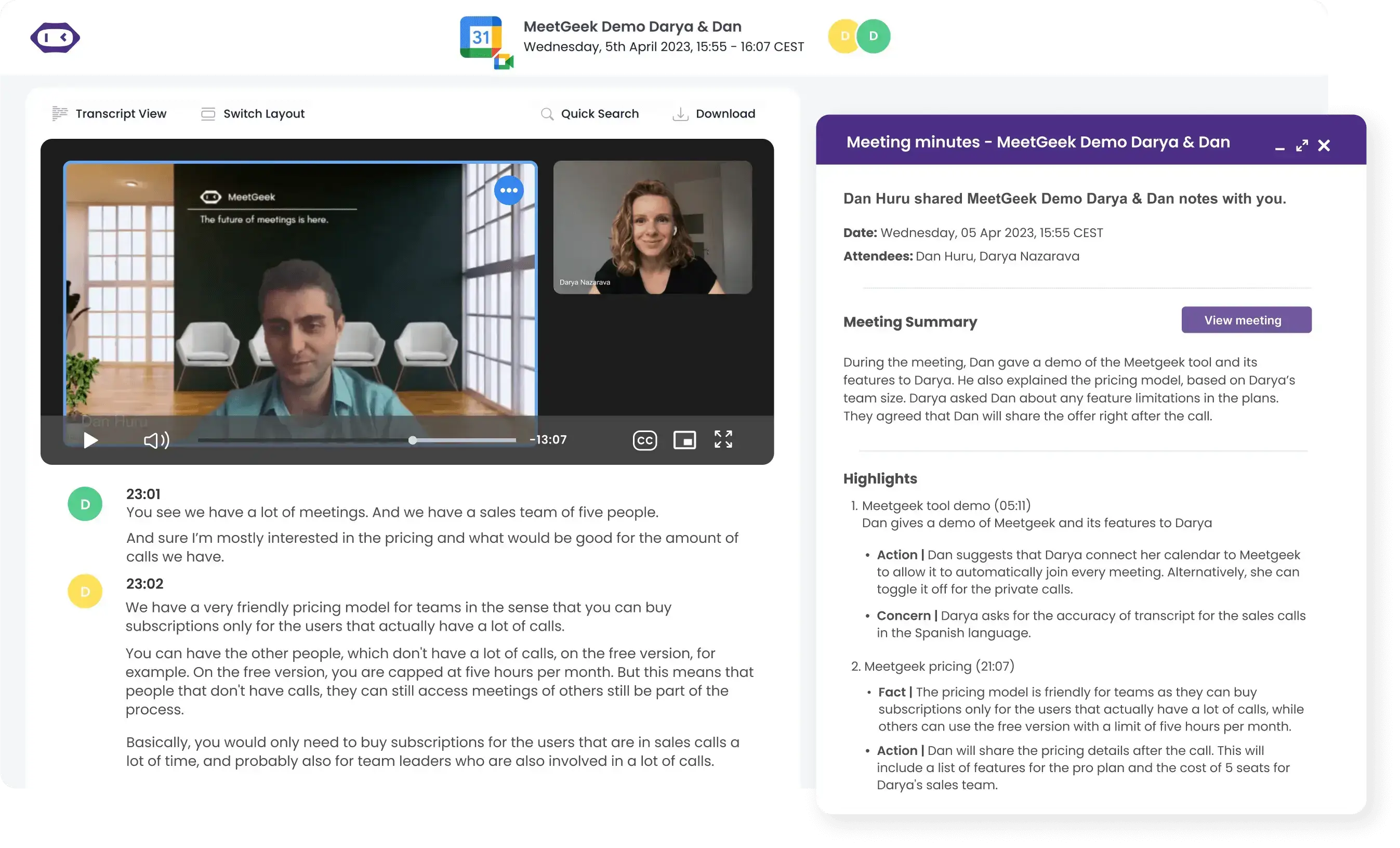
PRO TIP #1: Relying on data is paramount when creating a client profile. Use it to your advantage to create a detailed, accurate profile that speaks to the needs and wants of your target market.
PRO TIP #2: Once you’ve created an ideal client profile, test it with potential clients and refine it as needed. This will help ensure that your profile is accurate and effective.
3. Help Potential Clients Find You
Times have changed, and so did the general approach toward making businesses known to the public. As a new business owner, you should invest in digital and traditional marketing strategies to help potential clients find you. Partnering with a marketing agency can provide you with the expertise and resources needed to reach your target audience effectively. Below, it’s a breakdown of the most important things you’ll need to get started!
A. Build Your Personal Brand
A solid brand identity helps position your business as an industry leader and makes it easier to reach new markets.
Once you defined your target audience and your unique value proposition (UVP), ask yourself: Why should potential clients choose me over the competition? What does my business bring to the table that no one else does?
Think about the skills and experience you have, and how you can harness them to create a unique personal brand. This is especially important for consulting businesses.
Once you have a clear image of your unique strengths, it’s time to craft your message. Create a positioning statement that articulates how your skills and experience can benefit your customers or clients. To further enhance your branding efforts, consider using dynamic QR codes for easy access to your website or promotional content. Free vs. paid dynamic QR codes can provide different benefits. Free QR codes are great for simple use cases, allowing businesses to create codes without a cost.
PRO TIP: Developing compelling messaging requires an in-depth understanding of your target audience’s needs. To build trust, adopt a consistent voice and tone when communicating with your customers and clients.
B. Create a Social Media Presence
Creating a social media presence is a non-negotiable in today’s digitalized business world. Consider these key points when creating a social media presence:
- Determine the Purpose of Your Social Media Presence
Is it solely to get clients, or are you also trying to increase brand awareness, promote products or services, or engage with customers? Having a clear purpose will help guide your strategy and content creation process. For example, if you want to increase your brand reach, use Instagram to share videos and visuals. Include getting IG followers to share your content in your strategy.
- Select the Right Platforms
Research and determine which platforms your target audience is most active. If your target audience consists predominantly of your people who spent most of their time on Instagram and Snapchat, these platforms will be the most effective choice to concentrate your marketing efforts on. If your target client spends time on LinkedIn, use Linked Helper automation support to put LinkedIn lead generation on autopilot.
It’s important to note that you don’t need to be on every platform, as this can be overwhelming and can lead to neglecting to create valuable content.

- Maintain Your Brand’s Identity Across All Platforms
A brand identity includes a cohesive color palette, logo, and font that you maintain throughout all your visual communication across all channels. Having a cohesive identity will help customers recognize your company and make them feel more connected to your brand while also fostering a sense of trust and familiarity with the company. Using an AI logo generator can simplify the design process, allowing businesses to quickly create professional and customizable logos that align with their brand identity.You can start with your brand logo which you can create with the help of this guide on how to design a logo.
- Create Relevant Content
Tailor your content to each platform and keep it engaging, informative, and entertaining. Curated posts, case studies, and guides are just a few of the available options you can choose from. Regularly update your social media platforms to ensure you’re properly communicating with your followers. For businesses handling multiple client accounts, social media management tools for agencies can streamline scheduling and ensure consistent posting across all platforms.
Don’t forget that optimizing all your posts is essential to get to the top of the organic search. Apart from all the typical SEO tactics, make sure you optimize for Google Search Generative Experience (SGE). How? Write in everyday language, throw in rich media files, and improve your structured data.
PRO TIP: Be open to feedback from your followers and use that knowledge to better your content.
- Monitor Your Progress
You can see if your social media efforts are working by tracking metrics such as likes, follows, comments, and shares. The easiest way to do this is through in-platform analytics or tools like Google Analytics and other google analytics alternatives.
For a more comprehensive view, especially if you're using Salesforce for CRM, leveraging Google Analytics integration with Salesforce can provide valuable insights. Building a custom Looker Studio dashboard is also a great way to track performance from multiple data sources. This data will help you understand what content is resonating with your followers and what the areas for improvement are.
C. Explore Digital Advertising
When looking to explore digital advertising, there are several important considerations that you’ll need to keep in mind.
- Search Engine Ads
Search engine ads can be an incredibly effective way for your business to reach its target audience and drive more sales.
To get the most out of search engine ads, it’s important to understand the different types of options available and the advantages and disadvantages associated with each.
One of the most common options are pay-per-click (PPC) campaigns. This type of search engine ad requires businesses to pay each time someone clicks on their ad, making it a great option for companies with a limited budget. PPC campaigns also allow businesses to target specific audiences and gain valuable insights through detailed analytics. In the SaaS industry, businesses rely heavily on online marketing strategies to drive traffic and generate leads. One of the most effective methods for SaaS SEO services is to increase their online visibility and attract potential customers through search engine optimization (SEO). For best results, it's advisable to utilize international seo services.
Another option to consider is cost-per-thousand impressions (CPM). This type of ad requires you to pay each time their ad is shown 1,000 times. CPM campaigns are great for increasing brand awareness and can be an effective way to reach a larger audience.
PRO TIP: Consider remarketing campaigns. They target people who have already visited your website or interacted with your brand and convert them into actual clients.
- Social Media Ads
Social media ads are advertisements that appear on social media platforms to promote various products, services, or events.
Their aim is to capture the attention of users who are scrolling through their feeds and normally contain suggestive visuals, text, and a link to a website or a landing page. They are targeted to users based on their interests, demographics, location, and other criteria.
To run ads effectively, it is also needed to follow platform rules and review requirements, including meta advertising policies, to avoid disapprovals and keep campaigns compliant.
Your strategy for social media advertising should include comprehensive objectives and goals, a detailed budget, and a timeline for goal completion.
Keep in mind that different types of ads have different advantages and disadvantages. For example, sponsored ads are a great way to reach a large audience but come with a higher cost, while organic posts are cost-effective but may not reach as many people.
Ensure that the ads are optimized for maximum engagement. Select high-quality visuals that capture the attention of your audience, and craft a compelling copy that speaks to the needs of your customers.
Learn about various social media advertising tools and services available to you. Research everything you can about various social media advertising tools and services available to you. By doing so, you can automate various parts of the advertising process, monitor success in real-time, and decide whether and when to change your approach. To maximize your advertising efforts, access any available support, including free tutorials and webinars.
D. Sign Up For Industry-Specific Job Boards
Signing up for industry-specific job boards is a cost-effective way to reach large numbers of potential customers.
Begin by researching all the available job boards and deciding which ones are the most suitable. Aim for job boards with a high number of active job seekers, as this will increase the chances of your job postings being noticed and attracting qualified applicants.
Remember to consider the cost of signing up for an industry-specific job board, as this will vary depending on the board’s features and the number of job postings you wish to make.
Regularly monitor the job board to make sure that you’re getting the most out of your investment. You can do this easily by tracking the number of applications received, the percentage of qualified applicants, and any other relevant metrics.
4. Upgrade Your Website
To attract new customers for your business, you need to think about the impact your website makes. Here are some key tips to help you achieve this goal and how to complete each of them!
A. Build a Website
Creating — or upgrading — your website gives potential new clients an insight into your services and products, and provides a platform for customers to interact with your business. Optimize your website for higher speed and better core vitals using tools like Nostra AI or other available free AI website builder solutions to deliver an engaging user experience
Begin by thoroughly researching all the available web development services and studying their offer.
Get in touch with a web designer that can assess if your website is visually appealing and easy to navigate. It should have a clear layout and be designed to be responsive across multiple devices.
To create a truly engaging experience, consider including visuals, such as videos, infographics, and images—but ensure they’re optimized. ImageKit's image API automatically delivers images in modern formats like AVIF and WebP while adjusting compression in real-time based on network conditions. Use your website to link to your social media pages, allowing customers to easily follow your business’s journey. For businesses looking to enhance site performance, Canada VPS hosting could be a great option to ensure fast loading times and secure hosting environments.
PRO TIP: Follow the best search engine optimization(SEO) practices to optimize your content and make sure it ranks on Google. This should include using relevant keywords throughout the website, especially in titles and meta descriptions, as this will help customers to find the business more easily.
B. Create SEO-Friendly Blog Content
Creating SEO-friendly blog content to attract clients is not as complicated as it may initially appear. It is a process that requires both creativity and a certain degree of technical knowledge.
Consider hiring a blogger or outsourcing that task to someone who is familiar with SEO and all things writing. Work with them to determine the most relevant topics to write about and focus on creating value through your blog content. If you're looking for expert guidance, it's beneficial to contact SEO agency professionals who can help refine your strategy and enhance your online presence. Partnering with a B2B SEO agency can be especially valuable for businesses aiming to strengthen their reach within competitive industries.
Ensure that the content on your blog is SEO-friendly. Include relevant keywords throughout the blog post and optimize the content for the search engines. Ideally, keywords should appear in the title of the blog post, as well as in the introduction, throughout the body of the article, and in the conclusion.
Include relevant images throughout your blog posts to further boost your SEO. The images should be relevant to the content and have ALT descriptions that contain the keywords you’re trying to rank. This will make the blog post more visible to the search engines, which will in turn make it more visible to potential clients.
Additionally, make sure that your blog posts are properly interlinked with other relevant posts. Internal linking is a great way to get exposure, which will make readers more likely to stay on your website and engage with it. Furthermore, they prompt search engines to understand and rank your website better, which results in more exposure to potential customers.

C. Guest-Post on Relevant Blogs
Guest posting on relevant blogs is an effective way to establish credibility, reach new audiences, and increase website traffic.
Select a blog that is relevant to your business’s industry and target audience, and most importantly, has an active and engaged audience.
When writing the post, make sure that it is original and of high quality, while also providing value to the readers by educating them or providing useful information or tips. Posts should also be well-researched and accurate.
Once the post is written, pitch it to the blog. Your pitch should include information about the business, the post topic, why the post is relevant to the blog and its audience, and how it will benefit readers. Also, include any relevant links to the business’s website or other necessary information in the pitch.
PRO TIP: Consider reaching out to influencers and industry leaders who may be interested in the post and encourage them to share it.
D. Leverage Social Proof
Social proof is a psychological phenomenon where people assume the actions of others in an attempt to reflect correct behavior for a given situation. People are more likely to trust the opinion of others when making decisions, and social proof can be a powerful tool for businesses to influence decision-making and drive conversions.
The most common form of social proof is customer testimonials. Genuine customer reviews demonstrate to potential customers that others benefit from your product or service and that your business is legitimate and reliable. Make sure to add social proof on the website to build trust and drive more sales.
Make sure that these customer reviews are genuine and not fabricated in any way. If you can, try to include an image of the customer along with their review to further increase the credibility of your social proof.

Another great way to leverage social proof is to showcase awards and certifications that your business has earned. This will demonstrate that your business has been recognized by other players in your industry and that you have a good track record of success.
You can also use social media to your advantage to share customer success stories and reviews. Consider offering discounts to customers who post about their experience with your business, as this will encourage more people to share their positive interactions. Additionally, utilizing social media management tools can streamline this process and amplify your efforts. By leveraging these tools, you can efficiently manage your social media strategy, ensuring that your brand remains active and responsive, ultimately leading to increased customer satisfaction and loyalty.
5. Find Potential Clients
A lot of times, you have to be the one to reach out to prospective customers. Here’s what you have to do!
A. Learn Where Your Prospective Clients Spend Their Time
Learning where your prospective clients are spending their time can be extremely beneficial, as it helps create more effective and targeted marketing campaigns, as well as allocate resources towards the most successful methods.
An effective way to do this is to look at trends and demographics:
- Do your potential clients spend time on social media? If so, which platforms?
- What type of websites do they visit?
- Are they engaging in online communities?
- Are they attending events?
Answering these questions can give you an insight into the interests and needs of your prospective customers, allowing you to cater your marketing campaigns to meet their needs.
B. Ask for Referrals from Existing Clients
Asking for referrals is a powerful way to get more clients. Referrals are a powerful way to get more clients, so be strategic and respectful when asking.
First, start by targeting your best or high-paying clients and affiliate partners. These are the clients who have been with you the longest. They are usually the most loyal, and most likely will agree to refer you.
Once you have identified your best customers, craft your request for referrals. Aim to be specific and provide clear instructions to make it easy for your customers to help you. Explain why you are asking for referrals, what you are asking for, and how the referrals will benefit both you and your customer.
Consider offering incentives to customers who refer you to new clients, including discounts on products or services, gift cards, or other rewards. These incentives can be prominently displayed on your digital storefront to attract potential referrers. You could also consider giving branded merchandise such as custom hats, t-shirts, or sweatshirts to show appreciation and spread brand awareness.
You can also include a referral program on your website where clients can earn points or rewards for every referral. This gives customers an incentive to keep referring you to new clients. Make sure that your existing customers are properly informed about your products or services. Incorporating referral software can streamline the process, making it easier to manage and more attractive to your customers
Provide all the information they need to explain your services to potential clients. This includes brochures, videos, and other materials that explain who you are and what you do.
Make it a priority to follow up with your customers after they have referred you. Thank them for their contribution to your community, as this helps to consolidate the relationships with existing customers and shows them that you appreciate their help.

C. Grow Your Emailing List
To grow your emailing list, develop a comprehensive strategy that focuses on creating relationships, content optimization, and leveraging technology.
Establish contact by engaging in conversations on relevant topics, responding to comments, and sharing valuable insights on your business’s social media channels.
Next, it's time to produce and refine your content. Keep your message practical and informative, and make sure that it is crafted with your target audience in mind. Keep things interesting by including blog posts, e-books, or videos. Make your emails easy to read and provide a clear and powerful call to action (CTA).
Lastly, if you bulk send emails, use email marketing platforms to personalize your emails and evaluate engagement rates. Remember to optimize all emails for mobile devices. Additionally, incorporating gamification in email marketing, such as interactive quizzes or reward systems, can significantly boost engagement and make your content more compelling.
D. Cold Email Prospective Clients
Cold emailing is one of the most cost-effective, yet overlooked, ways to attract new customers and build relationships with existing ones.
First, create a list of potential customers that you would like to target. Make sure to maintain a clean email list to ensure you are reaching the right audience. Try to segment your list based on factors such as age, job title, and location. This way, you will be able to tailor your message to the correct audience.
If you’re in the B2B space, make sure to invest in quality B2B lists, with fresh and updated potential client information, in order to make the most of your time and money during outreach sessions. These lists often contain more than just contact details, which should help you better tailor your outreach for ideal results.
Secondly, craft an email that is concise, relevant, and engaging. Begin by introducing yourself and your business, and provide a short description of what you have to offer. Avoid long-winded sales pitches, as this will only cause readers to lose interest. Instead, focus on your unique value proposition and why it is relevant to the recipient. You may also consider looking into sales deck examples to get inspired.
Thirdly, use the right language. Include words and phrases that are clear, easy to understand, and demonstrate your knowledge of the industry. Personalize your emails where appropriate and be sure to use a professional tone, as this will make your message more likely to be read and taken seriously. One of the most important elements to help you with this is your signature. Create a signature that reflects your role and contact information to reduce the chances of your email being mistaken for spam. Additionally, you can use AI templates to craft your outreach emails to boost your open rates.
Consider experimenting with A/B testing to see which version of your email works best. This will help you to optimize your message and increase the chances of it being opened and read. Make it a point to manage your email list and keep it clean to improve your email delivery success rate.
Lastly, make sure that you provide a call-to-action that encourages the recipient to take get in touch with you. Remember to keep track of the responses that you receive. This will give you an idea of what is working and what is not.
Once you have nailed every aspect of your cold email campaign, it's time to send emails. The most effective approach is to use cold email software that automates the email sequences, tracks your campaigns' performance, allows you to A/B test different variables, helps you with deliverability, and enables you to write super-personalized emails.

PRO TIP: It’s important to send the emails at the right time so that customers are more likely to open and read them. For example, if you send emails too late at night, they may go unnoticed.
E. Send Follow-Up Emails
Keep the tone of the sales follow-up email professional, yet friendly. Consider providing special discounts, free trial periods, and other offers to incentivize the recipient to follow through.
PRO TIP: Automate the follow-up process with a tool of your choice, which will automatically send out emails based on your specified criteria.
6. Become Friends With Your Industry
Sometimes, trying to find clients or getting them to find you aren’t enough on their own. That is when you have to step up and make the industry work to your advantage. Here’s how!
A. Attend Community Events
Conduct a thorough analysis of any community events that may take place — either online or in person. Look into the type of attendees the event is targeting, what topics the event will focus on, and the expected turnout.
Develop a plan before the event that outlines the goals you hope to accomplish by attending. This will help you to focus on the right activities and maximize the time you spend there.
During the event, participate in activities, network with the attendees, and make sure to stand out. After the event, follow up with the people who expressed an interest in your products and services. To facilitate this, carry QR code digital business cards with you to share. Check for a two-way contact-sharing feature card. It's an easy way to collect contact details of prospective clients.

B. Build Strategic Partnerships
Look for partners that have complementary goals, skills, and resources. Examine their target markets and customer base to ensure the collaboration is a good fit. If you’re at the beginning of your journey, try reaching out to either local business owners, or other small business owners, as they are more likely to be doing the same thing as you.
Once you have that figured out, it’s time to come up with a plan. Outline the objectives and goals of the partnership, the responsibilities of each party, and the timeline for goal completion.
Afterward, you can put your plan in writing, by drafting an agreement that states the terms and conditions of the partnership. This should include details about the scope of the partnership, the duration, the costs, and the potential risks.
Another way to do this is by leveraging your already-existing relationships with customers, suppliers, and industry partners to identify potential opportunities. Once you seal the deal, spread the word about the partnership and the benefits it offers to potential clients.
C. Consider Partnerships With Agencies
Consider the type of agency you want to partner with. This could be a digital marketing agency, a public relations firm, or a full-service marketing agency.
It is important to consider the services that the agency can provide, as well as their past success rates and reputation. Additionally, look into the agency’s cost structure, as well as their availability and response times.
Make sure the agency of your choice has a clear understanding of your particular industry and target market. This ensures that the agency understands your brand and its goals, as well as the audience that the business is trying to reach. You can ask the agency for case studies or success stories that demonstrate their track record in helping other businesses. The best digital marketing agencies often showcase their success in various industries, providing clear evidence of their expertise and ability to achieve results.
Pick an agency that values transparency and communication, as this will ensure that your business and the agency are on the same page and working towards the same goals.
D. Partner Up With Complementary Businesses
Partnering up with complementary businesses is a great way to attract new clients and expand your current customer base.
Begin by identifying the right type of partner to maximize the success of this strategy. The partner you choose must have a complementary product or service offering to ensure there is no overlap or competition between you.
Make sure to do your due diligence and research your partner’s reputation, customer base, and current partnerships. Remember that partnerships are a two-way street, so both you and the other business owners should get something out of the partnerships. When drafting your agreement, do your best to keep it fair and equitable. For example, partnering with a delivery company offers several practical advantages when managing the physical production of goods. Their expertise and smart route planning can significantly boost the efficiency of your delivery operations.
Make sure that the partnership is flexible and can adjust to changes in the markets or customer needs.

7. Focus on Providing Value
Sometimes, customers won’t even remember your exact product, but they will remember how your product made them feel and the value it added to their life.
A. Create a Solid Offer
A solid offer that will attract clients should focus on providing value to potential customers. This value should be derived from both tangible and intangible aspects, in order to create an offer that resonates with a wide range of clients.
You can provide tangible value simply by adjusting your pricing according to the services you provide, but also by offering discounts and promotions.
The thing that many businesses tend to overlook is providing intangible value. This could come in the form of excellent customer service, tailored advice, and support, or additional services or products that have been bundled with the main offer.
This can help create a unique offer that stands out from the competition. Keep in mind that you also need to strive to create the optimal customer experience to ensure they are able to find the offer easily and understand the value it provides.
Creating a solid offer often means you need to adjust it based on how potential customers respond to it. That’s not an easy task to complete on the spot, and that’s why we created Meeting Insights, the feature that allows you to objectively know how well your prospective clients are responding to your offer.
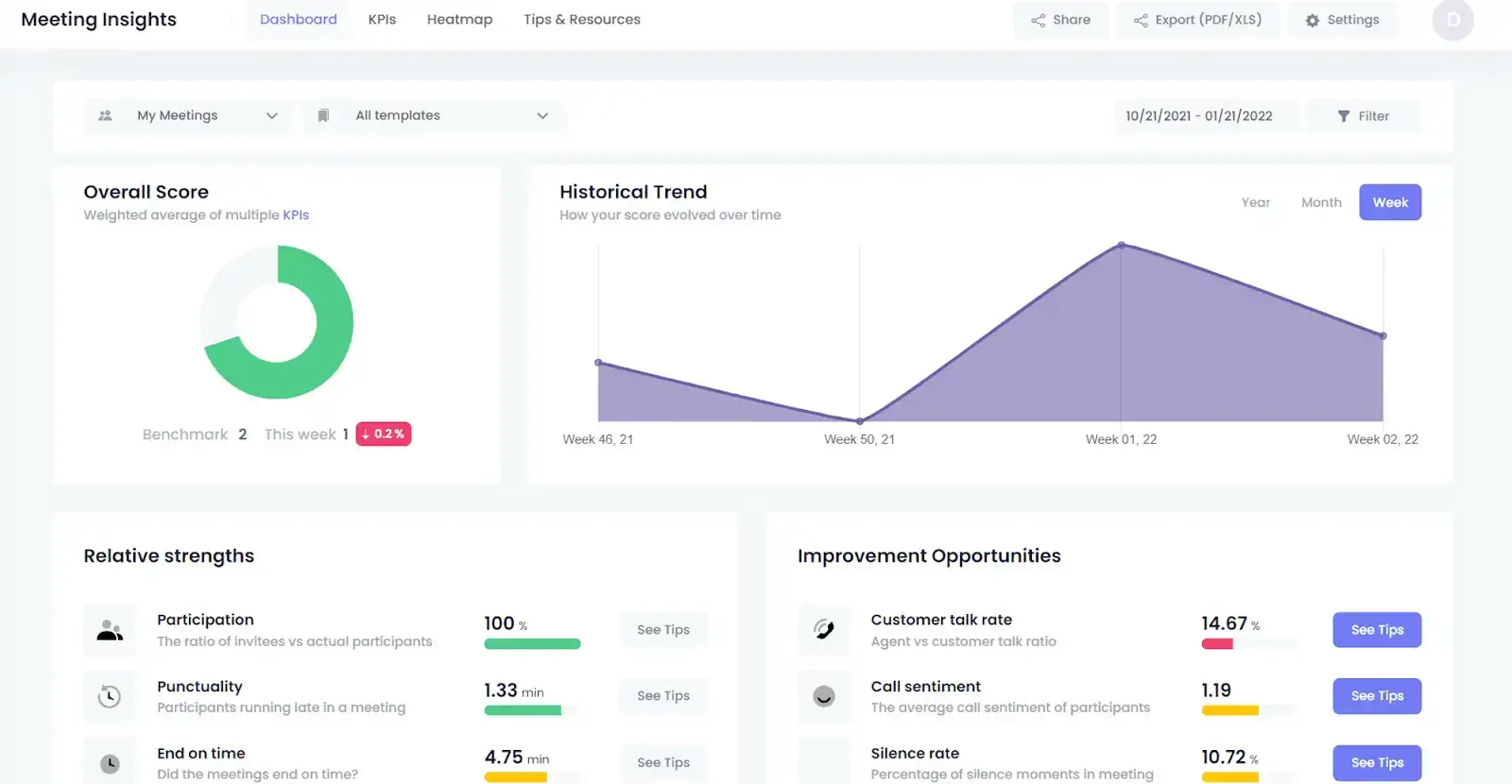
B. Provide Free Value
The idea here is to deliver relevant and useful information, products, or services to your target audience. This could involve sharing useful stuff like blog entries, e-books, videos, webinars, and so on.
Furthermore, offering a free consultation or advice to potential clients can help build relationships and trust. You can also provide free samples of your products or services to help customers become acquainted with your business.
FACT: While the obvious value of these strategies is to attract potential customers, there are some lesser-known benefits that can help you stand out from the competition. For instance, providing free content, services or expertise can help you establish yourself as an expert in your field.
C. Host Virtual Events For Potential Clients
There are a few steps to follow when hosting a virtual event to attract potential customers:
- Choose the Right Platform
The platform you choose for your virtual event should be able to accommodate the number of attendees you plan to have, as well as provide features like video streaming, chat, polls, and virtual breakout rooms.
- Promote Your Event
Use various marketing channels and strategies to promote your events: social media platforms, email marketing, and online advertising. Be sure to include a description of the event, the agenda, and any pertinent details.
- Engage Your Audience
Once your event begins, find ways to engage your attendees. This could include polls, Q&A sessions, or interactive activities. In addition, provide an avenue for feedback and comments, so that you can make the necessary changes for the next event.

- Choose the Right Speakers
When it comes to virtual events, having the right speakers can make or break the event. Choose speakers that are engaging, knowledgeable, and passionate about the topic.
- Follow Up
After the event, follow up with your attendees. Email them with a link to the recording of the event, or a survey to get their feedback. This will help you improve your events in the future.
D. Offer Discounts And Incentives for New Customers
Offer one-of-a-kind discounts or incentives to entice new customers: a percentage off their first purchase, a free trial period, or a special bundle deal with multiple product discounts.
Consider the customer’s lifetime value, which is the amount of money a customer will spend on your products or services during their lifetime. Customers with a high lifetime value are more likely to capitalize on discounts or incentives.
When brainstorming discounts or incentives, leverage customer data. Target your deals to customers based on their preferences, past purchases, previous interactions with your business, or any other data you have collected. You can then promote your offer to potential clients through SMS campaigns, email marketing, advertising, or social media.
PRO TIP #1: Create a sense of urgency with your discounts and incentives by offering a limited-time offer or creating a sense of scarcity.
PRO TIP #2: Test different offers to see which ones have the best conversion rates, as this can help you make more informed decisions about which discounts and incentives to offer in the future.
Learn How to Get Clients and Grow Your Business Today!
Any business owner knows how hard it can be to get clients for their business. Luckily for you, the strategies we shared will help you get clients quickly and effectively!
We know how overwhelming and confusing it is to try to be everywhere at the same time when trying to get clients for a new business — or more clients, for an already existing one.
Try MeetGeek for free to see how a virtual meeting assistant that automatically records, transcribes, analyzes, and summarizes your meetings can save hours of your time and optimize how you’re doing business!
.avif)



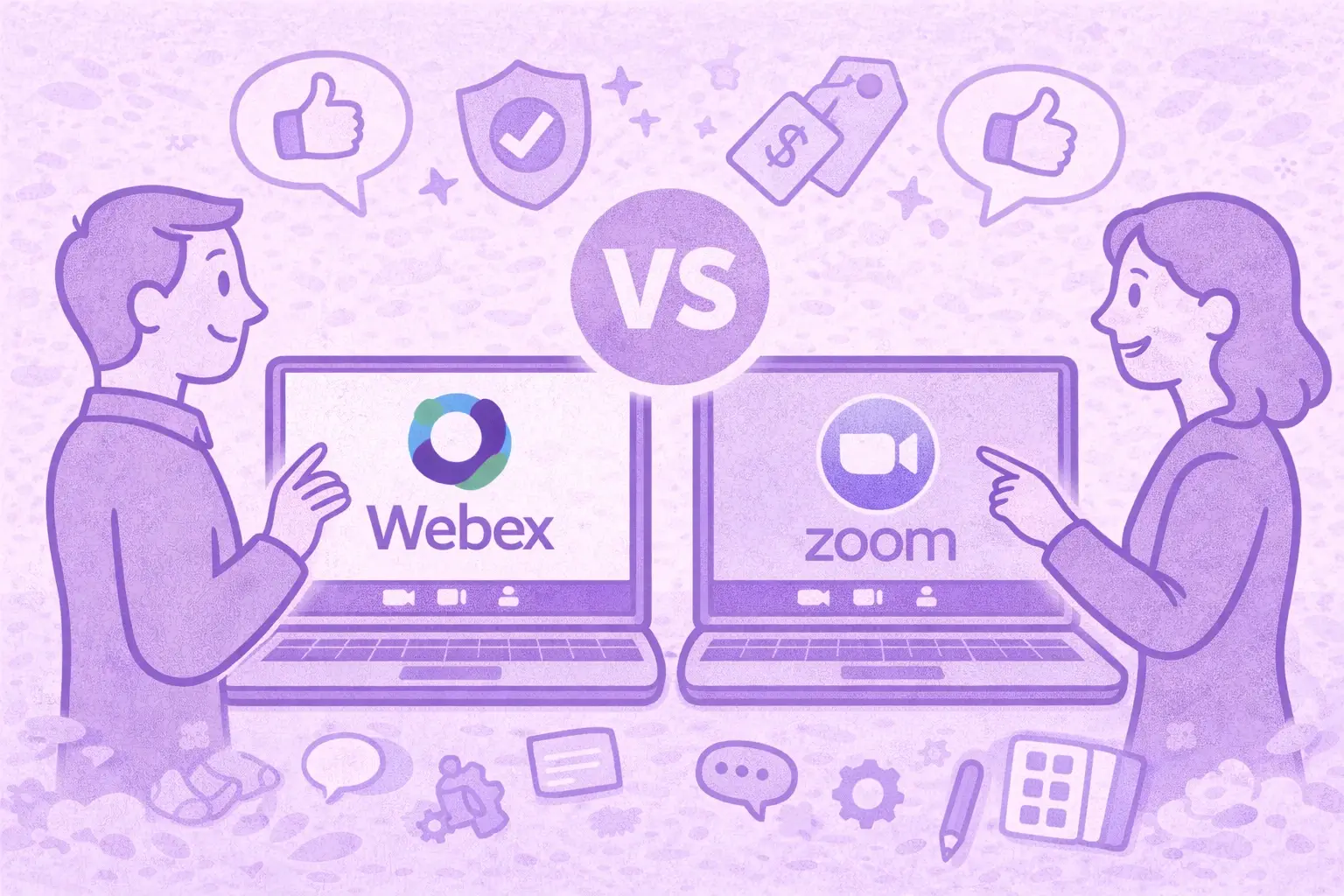



.webp)


